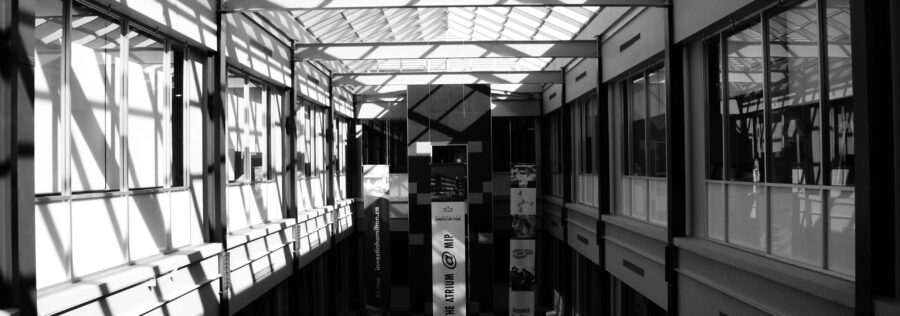
Innovation City?
- Dev Team
- 01 Jun 2011
By Keanin Loomis
Innovation Night. Innovation Breakfast. McMaster Innovation Park. Innovation Factory. Innovation this. Innovation that. How can a word that so few people are able to define become so overused?
Apparently, it’s reached proportions that invite mockery even from our own Mayor – in a recent Andrew Dreschel column in the Hamilton Spectator about the toxic sludge sitting at the bottom of Randle Reef, Mayor Bratina “Speculated that, ‘Maybe someone is going to find something that eats it up’ now that Hamilton is the ‘innovative centre of the universe,’ thanks to Mac.” I found the sarcasm to be unhelpful when so many people and organizations – including the City of Hamilton itself – have dedicated significant resources to an attempt to transform one of this city’s gateways and expand the tax base with high-paying, knowledge-based jobs.
Then again, when you hear politicians of the slicker sort endlessly tout innovation as the panacea to our future economic competitiveness, perhaps the skepticism elicited from the more cynical among us may be deserved.
Being the individual charged with elevating the profile of the new non-profit organization, Innovation Factory, within the community, I too have lamented the overuse of the word. I’m concerned that innovation risks losing its meaning before people have even grasped what it actually means.
Which is why, at a recent local tech conference, I was piqued to attend a session titled “The Myth of Innovation” featuring writer/blogger Scott Berkun. In his seminar, Berkun trained the audience to be cognizant of the context in which today’s buzzwords are being employed. His point was that, when people and organizations are hollowly adopting the terms du jour, we need to vigilantly call bullshit.
Berkun defined innovation as “significant, positive change.” It’s a definition I happened to like because it is non-controversial, it doesn’t pertain only to technology, and it suggests that “innovators” do not need any particular education, skills, or traits.
After the session, I walked up to Berkun and sheepishly introduced myself by saying, “I work for an organization that has innovation in its title. What do I do?” He reassuringly replied, “That’s okay, as long as you and your organization are working to affect significant, positive change in everything you do.” That resonated with me, because that indeed is our goal.
Feeling empowered, I walked out of the conference thinking about Hamilton becoming a centre for innovation, not necessarily in the technological sense (though we at Innovation Factory are certainly trying), but as a community as a whole. It is certainly a city that needs significant, positive change, and is one that, by all accounts, is poised to experience just that. I have not met many people in this city who would disagree.
But, while there has been positive change in Hamilton over the last few years (even in the face of strong global economic headwinds), it has not been as significant as nearly anyone would like. For example, McMaster Innovation Park certainly has undergone rapid transformation (just take a look at the satellite photos of the area on Yahoo Maps – Camco certainly looks like it was a prolific employer!), but it will run out of steam in the not-too-distant future without a total community (and, probably, provincial and federal) effort.
Thus, no matter how much we cheerlead this city, I can safely assume that everyone harbours some degree of doubt in the recesses of their minds, because Hamilton still has a jobs problem. Then again, most every city not on a Richard Florida approved top ten list is struggling with how to confront the knowledge economy.
Happily, it’s that recognition that spurred 25 private and institutional supporters to support the operations of Innovation Factory in its infancy. Law firms, accounting firms, banks, technology companies, Mohawk, Mac, the city’s EcDev department, and so many other organizations and individuals have lined up behind the common purpose of creating a web of support for the next generation of quality jobs generators.
But, it’s going to require a lot more help than that. As a community, we have to create the optimal conditions for the next generation of job generators to flourish.
The strategies for triggering a dynamic knowledge economy are many – some work and some do not – and can fill future columns at length. For now, suffice it to say that some tough choices are going to have to be made, and some assumptions about what can and can’t be done here in Hamilton are going to have to be challenged. But the first step is in recognizing that the status quo is not acceptable, and that is something on which this community of 500,000 people can almost universally agree.
A few questions then: What, if anything, is standing in the way of Hamilton realizing significant, positive change? While people recognize that the status quo is not good enough, I don’t see a broad swath of the citizenry active enough in pushing for it.
Do we have the right political leadership? Surely our city councillors would all answer in the affirmative if they were asked whether they supported significant, positive change, but I haven’t seen anything to indicate to me that they are doing anything to foment it. Then again, I heard our former Mayor talk about it all the time and not much happened there either.
Does that mean that our municipal political system is broken?
Certainly we can’t just wait for our local politicians to act, but where is the private sector in helping transform Hamilton at a much more rapid pace? Why is it that the people who recognize Hamilton as a can’t miss opportunity are mostly from out of town?
I would hope that progress is so inexorable that it will happen in spite of uninspiring local leadership. Is it inevitable, especially when (or if?) the global economy improves? If so, is it out-of-towners who are primarily going to be reaping the rewards?
These are the many questions I still haven’t found answers to in my almost two years in Hamilton. In the meantime, I and the thousands of people in this city pushing forward with the “innovation agenda” will continue undaunted, certain that most, if not all, of the right ingredients now exist. We would welcome the Mayor’s full support and active participation.
Keanin Loomis is the President and CEO of the Hamilton Chamber of Commerce, and is the former Chief Advocate at the Innovation Factory at McMaster Innovation Park. Keanin is an American-born reformed-lawyer who now lives in Hamilton with his wife Trish and two kids.
Comments 0
There are no comments


Add comment